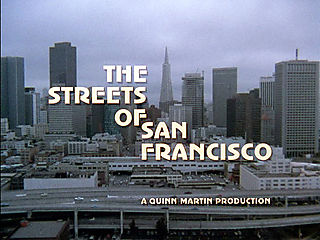My Blog
Absent
Sorry I haven' t been around here much. We have family staying with us from France and I had a book signing down in San Diego this week (on the way there, I stopped at eight Barnes & Noble stores and signed stock). I also have been preparing for some network pitch meetings and working hard on the next MONK book, which is due in a few short weeks. So, blogging has taken a back seat, though I've set aside a few things that showed up in my email this week to blog about later…
Free Books
I'm going to be at the The Mysterious Galaxy Bookstore in San Diego on Friday, August 8th at 7 pm to sign my new book MR. MONK GOES TO GERMANY alongside my brother Tod, who will be signing his new book, BURN NOTICE: THE FIX.
Anyone who buys a copy of MR. MONK GOES TO GERMANY at the signing will get a free signed, hardcover, first edition of BEYOND THE BEYOND or MY GUN HAS BULLETS while supplies last.
I'll also be giving away the books at my signings on Saturday, August 16 at Mysteries To Die For (1 pm) in Thousand Oaks, CA and Mystery Bookstore (4 pm) in Westwood, CA.
I hope to see you there!
Ciscos are taking it to The Streets

The recent announcement that CBS is developing a remake of THE STREETS OF SAN FRANCISCO made me wonder how the news was playing with the Ciscos, the diehard fans of the show who inundated ABC with packages of Rice-A-Roni a few years ago.
It isn't going over well. They have taken out a full-page ad in Daily Variety demanding the return of the show with the original cast, wardrobe, and automobiles.
"It's an outrage," said Kirby Sneed, spokesperson for the Save Our Streets Global Alliance. "Any version of STREETS without Karl Malden, Michael Douglas, and Darleen Carr would be an abomination."
His dream of a STREETS reunion nearly came true sixteen years ago when NBC mounted the TV movie/pilot BACK TO THE STREETS OF SAN FRANCISCO, which was written by William Robert Yates, one of the original producers. Malden returned, as did Carr, but he was teamed with two new partners and Michael Douglas' character was killed off. The fans felt betrayed.
"The fen have disowned the movie," he said. "We don't consider it canon."
Sneed says the "horrific creative choices" made in the movie have "been corrected in the subsequent fanfiction, but it took a lot of work."
He says that Ciscos realize that Malden, now in his 90s, might be too old to resume his part, but the fen would be willing to accept Paul Sorvino in his place, as long as he reprises his role as Inspector Bert D'Angelo, the lead of a short-lived STREETS spin-off called SUPERSTAR.
They also have "realistic expectations" as far as Douglas' participation is concerned, acknowledging that its unlikely that the feature film star would return for a TV movie. They are in serious discussions with Douglas' publicist's secretary about the possibility of him doing a cameo if a "true remake" is made.
They are confident, however, that Richard Hatch, who replaced Douglas in the series' final season, would be available to resume his role (he has already written his own screenplay for a STREET revival, which he is adapting into a comic book).
Sneed, who lives in San Francisco, has kept the series alive through fan fiction and a driving tour of STREETS locations that he offers to tourists in his1971 Ford Galaxie 500, the same model as the one Inspector Stone drove.
"It was more than TV show," he said. "It's as much a part of the city, and its history, as the Golden Gate Bridge."
Monk’s 100th Party

I just got back from the MONK 100th Episode party at an Italian restaurant in Hollywood. I had a great time catching up with all the writers and meeting some of the guest stars (as well as new semi-regular Hector Elizondo). I brought along my nephew Killian, who doesn’t speak a word of English. He’s in town with us from France for a few weeks and is a big MONK fan. Luckily for him, USA Network president Jeff Wachtel, actress Glenne Headly (who played Stottlemeyer’s wife), and Jason Gray Stanford’s girlfriend all spoke French, so he had folks to talk to. He also got to meet the whole cast and have his picture taken with them. On the way out, we all got a bottle of French wine in a “Monk 100th episode” comemorative leather bottle-bag. I let my nephew drink it on the way home (just kidding, of course). Now I am back at home, working on my 8th Monk novel, which is due in less than 90 days. Ahhhhhh!
girlfriend all spoke French, so he had folks to talk to. He also got to meet the whole cast and have his picture taken with them. On the way out, we all got a bottle of French wine in a “Monk 100th episode” comemorative leather bottle-bag. I let my nephew drink it on the way home (just kidding, of course). Now I am back at home, working on my 8th Monk novel, which is due in less than 90 days. Ahhhhhh!
Lewis: Series One and Two

Over the last few weeks I’ve been watching the first two seasons of LEWIS, the sequel series to INSPECTOR MORSE, one of my all-time favorite mystery series.
Lewis was Morse’s long-suffering sidekick in the original series. Now Lewis is the Inspector and he has a suffering side-kick of his own, former seminary student Sgt. Hathaway. The series features many of the same production team as MORSE, as well as the same Oxford locations and the Hitchcockian cameos by author Colin Dexter, who wrote the books that the series was based on. The commonalities end there.
The MORSE mysteries were rich, complex, surprising and intelligent…and were enlivened by Morse’s wonderfully irascible, embittered and brilliant bachelor and his strained, father-son relationship with Lewis, a simple-minded family man. The writer/directors of MORSE included Danny Boyle and Anthony Minghella…there are no comparable talents on the new show.
The mysteries in LEWIS are plodding, padded and obvious…and worst of all, they are mostly the same story told again and again (a group of current students or former classmates share a dark secret that sparks a series of killings). Lewis and Hathaway end up solving the crime through coincidence and luck rather than deduction or cleverness. The suspects are all one-dimensional cliches.
The absence of John Thaw’s Morse is keenly felt…even more so by the unnecessary references to his character that are sprinkled heavy-handedly and awkwardly through many of the episodes. One of the biggest mistakes was trying to turn Lewis into Morse…by
killing off his wife and sending away his kids. So now he is the lonely
bachelor butting heads with his bosses…almost forcing the audience to compare him to Morse. Unfortunately, his loneliness isn’t nearly as interesting and revealing as Morse’s. It’s just dull.
And while Morse’s ill-fated crushes were sad reminders of his lonely life…and his inability to fit in…the gimmick in LEWIS of having a female suspect in just about every episode wanting to drag him into bed is ridiculous and embarrassing.
And yet…I enjoy the show and pretty much devoured the episodes. I find it oddly soothing…like a cup of hot tea. The primary attraction of LEWIS is the relationship between Lewis and Hathaway (who is, by far, the more interesting character of the two) which sort of plays like “MORSE light.” Hathaway is a fascinating character and actor Lawrence Fox brings far more depth to his performance than there appears to be on the page. Their gentle banter lacks the bite of MORSE, but it has its pleasures all the same.
Maybe it’s more nostalgia for MORSE than any real love of LEWIS that keeps me watching…
LEWIS would clearly like to be the successor to MORSE…and if ratings in the UK are any indication, they’ve achieved their goal…but in my mind, REBUS wins that honor hands-down.
I’m Waiting for the remake of Barnaby Jones
TVSquad reports the surprising news that CBS is developing a remake of the Quinn Martin series THE STREETS OF SAN FRANCISCO, which starred Karl Malden and Michael Douglas as two SFPD detectives. Screenwriters Sheldon Turner and Robert Port are writing the script and Simon West is attached to direct if it goes to pilot. Can CANNON and BARNABY JONES be far behind?
Tempest in an A Cup
Over the last two days, I’ve received hundreds of hits on a four year old post about Disney giving Keira Knightly bigger boobs in the KING ARTHUR publicity stills and poster art. So why the renewed attention? It turns out that Knightly has refused to let another studio do the same thing for her new film DUCHESS:
“Keira Knightly is essentially giving young women permission to stand
up in their communities and their schools and their families and say,
‘Look, this is the way I look and it is OK,” said “Perfect Girls,
Starving Daughters” author Courtney Martin.
The 23-year-old’s chest has been the subjected to scrutiny
before. In promotions for “King Arthur” in 2004, the actress’ A-cup was
morphed into a C-cup on posters. At the time Knightly admitted, “those
things weren’t really mine,” though she still went along with the
publicity campaign. “I think that’s incredibly brave and could have a
huge impact on young women,” Martin said of Knightly’s decision.


